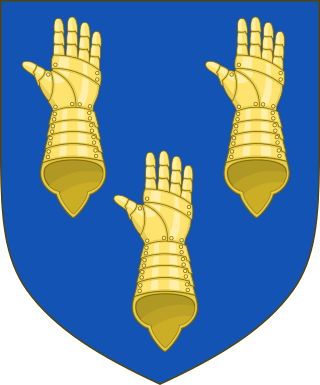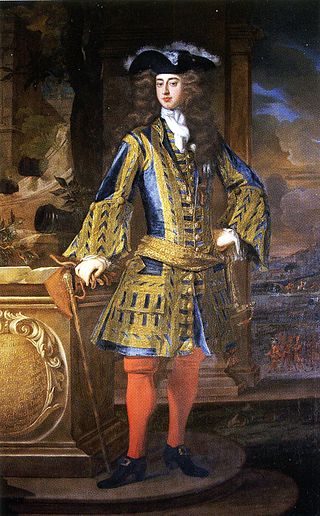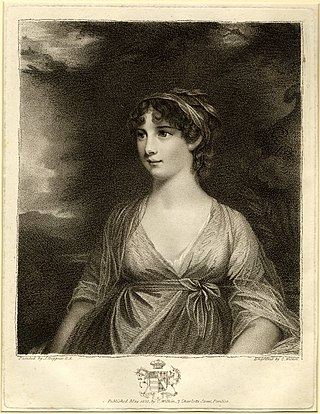| | | | Robert de Ros
before 1237–1285 |
|
| | | | | | | |
|
| | | | 
Baron Ros (later de Ros) of Helmsley, 1264 |
|
| | | | William Ros (Roos)
c. 1255–1317
1st Baron Ros 1299–1316 |
|
| | | | | | | |
|
| | | | William Ros (Roos)
c. 1285–1343
2nd Baron Ros 1317–1342 | | | | | | | | | | | | | | Edward III
1312–1377
King of England |
|
| | | | | | | | | | | | | | | | | | | | | | | | | |
| | | | |
Henry Percy
c. 1321–1368
Baron Percy | | William Ros
1329–before 1352
3rd Baron Ros 1342–1352 | | Thomas Ros
1335–1384
4th Baron Ros 1352–1384 | | John FitzAlan
c. 1348–1379
Baron Arundel | | | | | | Edmund of Langley
1341–1402
Duke of York |
|
| | | | | | | | | | | | | | | | | | | | | | | | | | | | |
| | | | | | | | | | | |
| | | | | | | | | | | | | | | | | | | | 
Earl of Rutland (1st creation), 1390 | | | | | |
|
| Mary de Percy | | John Ros
d. 1393
5th Baron Ros 1384–1393 | | William de Ros
c. 1370–1414
6th Baron Ros 1394–1414 | | Margaret
1372–1439 | | Edward of Norwich
1373–1415
Duke of York, 1st Earl of Rutland | | Richard of Conisburgh
1375–1415
Earl of Cambridge |
| | |
| | | | | | | | | | | | | | | | | Earldom title disused, 1415 | | | | | |
|
| | | | | | | | | | | | | | | | | | | | | | 
Earl of Rutland (1st creation), restored 1425 |
| | | | | | | | |
| | | | John Ros
c. 1397–1421
7th Baron Ros 1414–1421 | | Thomas Ros
1406–1430
8th Baron Ros 1421–1430 | | | | | | | | | | Richard of York
1411–1460
Duke of York |
|
| | | | | | | | | | | | | | | | | | | | | | | | | | | | | | |
| | | | | | | | | | | | | | | |
| | | | | | | | | | | | | | | | | | | | | | | 
Earl of Rutland (2nd creation), 1446 | | | | | |
|
| | | | | | | | Thomas Ros
1427–1464
9th Baron Ros 1430–1464 | | Anne of York
1439–1476
Duchess of Exeter | | Edward IV
1442–1483
King of England | | Edmund
1443–1460
Earl of Rutland | | Richard III
1452–1485
King of England |
|
| | | | | | | | Barony forfeit 1464 | | | | | | | | | | | Earldom extinct, 1460 |
|
| | | | | | | | | | | | | | | | | |
| | | | | |
| | | | | | | | | 
Barony restored 1485 | | | | | |
|
Robert Manners
d. 1495 | | Eleanor Ros
d. 1487 | | Edmund Ros
c. 1455–1508
10th Baron Ros 1485–1508 | | | | | |
| |
| | | | | | | | | Barony abeyant, 1508 | | | | | |
|
| | | | | | | | | | | | | | | | | |
| | | | | | |
| | | | | | | | 
Barony abeyance terminated, c. 1512 | | | | | |
|
| | | | | | | | George Manners
c. 1470–1513
11th Baron Rosc. 1512–1513 | | Anne St Leger
1476–1526 |
| |
| | | | | | | | | | | | | | |
| | | |
| | | | | | | | 
Earl of Rutland (3rd creation), 1525 |
|
| | | | | | | | Thomas Manners
c. 1492–1543
1st Earl of Rutland,
12th Baron de Ros |
|
| | | | | | | | | | | | | | | | | | | | | | | | | |
| | | | | | | | | | | | | | | | | |
| | | | Henry Manners
c. 1516–1563
2nd Earl of Rutland,
13th Baron de Ros | | | | | | | | | | | | | | John Manners
1527–1611 |
|
| | | | | | | | | | | | | | | | | | | | | | | | | | |
| | | | | | | | | |
Edward Manners
1549–1587
3rd Earl of Rutland,
14th Baron de Ros | | | | | | John Manners
c. 1552–1588
4th Earl of Rutland | | | | | | | | | | George Manners
c. 1572–1623 |
|
| | | | | | | | | | | | | | | | | | | | | | | | | | | |
| | | | | | | | | | | | | | | |
Elizabeth Cecil
c. 1572–1591
15th Baroness Ros
1587–1591 | | Roger Manners
1576–1612
5th Earl of Rutland | | Francis Manners
1578–1632
6th Earl of Rutland
17th Baron de Ros
1618–1632 | | George Manners
1580–1641
7th Earl of Rutland | | Frances Manners
1588–1643 | | | | | |
|
| | | | | | | | | | | | | | | | | | | | | | | | | | |
|
William Cecil
1590–1618
Earl of Exeter
16th Baron Ros
1591–1618 | | | | | | Katherine Villiers
1590–d. 1649
Duchess of Buckingham
18th Baroness de Ros
1632–1649 | | | | | | Francis Willoughby
1614–1666
Baron Willoughby of Parham | | John Manners
1604–1679
8th Earl of Rutland |
|
| | | | | | | | | | | | | | | | | | | | | | | | | | |
| | | | | |
| | | | | | | | | | | | | | | | | | | | | | 
Duke of Rutland and 
Marquess of Granby, 1703 |
|
| | | | | | | | George Villiers
1628–1687
2nd Duke of Buckingham
19th Baron de Ros
1649–1687 | | Elizabeth Jones
c. 1633–1695
Countess of Ranelagh | | | | | | John Manners
1638–1711
1st Duke of Rutland and Marquess of Granby,
9th Earl of Rutland |
|
| | | | | | | | Barony de Ros abeyant, 1687 | | | | | | | | | | | | | | |
|
| | | | | | | | | | | | Frances Coningsby
d. 1715
Countess Coningsby | | | | | | John Manners
1676–1721
2nd Duke of Rutland and Marquess of Granby,
10th Earl of Rutland |
|
| | | | | | | | | | | | | | | | | | | | | | | | | |
| | | | | |
| | | | | | | | Frances (Coningsby) Hanbury Williams
1707/8–1781 | | | | | | | | | | John Manners
1696–1779
3rd Duke of Rutland and Marquess of Granby,
11th Earl of Rutland |
|
| | | | | | | | | | | | | | | | | | | | | | | | | | | | | | | |
| | | | | | | | | | | | | | | | | | | |
| | | | Charlotte (Hanbury Williams) Boyle-Walsingham
1738–1790 | | | | | | John Manners
1721–1770
styled Marquess of Granby | | | | | | | | | | Lord George Manners-Sutton
1723–1783 |
|
| | | | | | | | | | | | | | | | | | | | | | | | | | | | | | | | | | | | | |
| | | | | | | | | | | | | | | | | | | | | |

Baron de Ros, abeyance terminated, 1806 | | | | | | | | | | | | | | | | | | | | | | | | | | | | | 
Baron Manners of Foston, 1807 |
|
Charlotte FitzGerald-de Ros
1769–1831
20th Baroness de Ros
1806–1831 | | | | | | John Manners
1751–1760
styled Lord Roos | | Charles Manners
1754–1787
4th Duke of Rutland and Marquess of Granby,
12th Earl of Rutland | | | | | | Charles Manners-Sutton
1755–1828 | | | | | | Thomas Manners-Sutton
1756–1842
1st Baron Manners 1807–1842 |
|
| | | | | | | | | | | | | | | | | | | | | | | | | | | | | | | | | | | |
| | | | |
| | | | | | | | | | | | | | | | | | | | | | | 
Viscount Canterbury and 
Baron Bottesford, 1835 | | | | | | | | | |
|
Henry FitzGerald-de Ros
1793–1839
21st Baron de Ros
1831–1839 | | William FitzGerald-de Ros
1797–1874
22nd Baron de Ros
1839–1874 | | | | | | John Henry Manners
1778–1857
5th Duke of Rutland and Marquess of Granby,
13th Earl of Rutland | | | | | | Charles Manners-Sutton
1780–1845
1st Viscount Canterbury and Baron Bottesford 1835–1845 | | | | | | | | | |
|
| | | | | | | | | | | | | | | | | | | | | | | | | | | | | | | | | | | | | |
| | | | | | | | | | | | | | | |
| | | | | | | | | | | | | | | | | | | 
Baron Roos of Belvoir, 1896 | | | | | | | | | | | | | | | |
| | | | | | | | | | |
Henry FitzGerald-de Ros
1827–1907
23rd Baron de Ros
1874–1907 | | George John Henry Manners
1807
styled Marquess of Granby | | George John Frederick Manners
1813–1814
styled Marquess of Granby | | Charles Cecil John Manners
1815–1888
6th Duke of Rutland and Marquess of Granby,
14th Earl of Rutland | | John James Robert Manners
1818–1906
7th Duke of Rutland and Marquess of Granby, 15th Earl of Rutland,
1st Baron Roos of Belvoir | | Charles John Manners-Sutton
1812–1869
2nd Viscount Canterbury and Baron Bottesford 1845–1869 | | John Henry Thomas Manners-Sutton
1814–1877
3rd Viscount Canterbury and Baron Bottesford 1869–1877 | | John Manners-Sutton
1818–1864
2nd Baron Manners 1842–1864 |
|
| | | | | | | | | | | | | | | | | | | | | | | | | | | | | | | | | | | |
| | | | | |
Mary Dawson
1854–1939
Countess of Dartrey
24th Baroness de Ros
1907–1939 | | | | | | | | | | | | | | Henry John Brinsley Manners
1852–1925
8th Duke of Rutland and Marquess of Granby, 16th Earl of Rutland,
2nd Baron Roos of Belvoir | | Henry Manners-Sutton
1839–1914
4th Viscount Canterbury and Baron Bottesford 1877–1914 | | Graham Edward Henry Manners-Sutton | | John Manners-Sutton
1852–1927
3rd Baron Manners 1864–1927 |
|
Barony abeyant, 1939

Barony abeyance terminated, 1943 | | | | | | | | | | | | | | | | | | | | | | | | | | | | | | | | | |
| | | | | |
| | | | | | | | | | | | | | | | | | | | | | | | | | | | | | | | | | | | |
|
Una Mary Ross
1879–1956
25th Baroness de Ros
1943–1956 | | | | | | | | | | Robert Charles John Manners
1885–1894
styled Lord Haddon | | John Henry Montagu Manners
1886–1940
9th Duke of Rutland and Marquess of Granby, 17th Earl of Rutland,
3rd Baron Roos of Belvoir | | Henry Frederick Walpole Manners-Sutton
1879–1918
5th Viscount Canterbury and Baron Bottesford 1914–1918 | | Charles Graham Manners-Sutton
1872–1941
6th Viscount Canterbury and Baron Bottesford 1918–1941 | | Francis Henry Manners
1897–1972
4th Baron Manners 1927–1972 |
|
Barony abeyant, 1956

Barony abeyance terminated, 1958 | | | | | | | | | | | | | | | | | | | | | | | Viscountcy extinct, 1941 | | | | | |
|
| | | | | | | | | | | | | | | | | | | | | | | | | | | | | | | | | |
|
Georgiana Angela Maxwell
1933–1983
26th Baroness de Ros
1958–1983 | | | | | | | | | | | | | | Charles John Robert Manners
1919–1999
10th Duke of Rutland and Marquess of Granby, 18th Earl of Rutland,
4th Baron Roos of Belvoir | | | | | | | | | | John Robert Cecil Manners
1923–2008
5th Baron Manners 1972–2008 |
|
| | | | | | | | | | | | | | | | | | | | | | | | | | | | | | | | | |
|
Peter Trevor Maxwell
b. 1958
27th Baron de Ros
1938–present | | | | | | | | | | | | | | David Charles Robert Manners
b. 1959
11th Duke of Rutland and Marquess of Granby, 19th Earl of Rutland,
5th Baron Roos of Belvoir | | | | | | | | | | John Hugh Robert Manners
b. 1956
6th Baron Manners
2008–present |
|
| | | | | | | | | | | | | | | | | | | | | | | | | | | | | | | | | |
|
Finbar James Maxwell
b. 1988 | | | | | | | | | | | | | | Charles John Montague Manners
b. 1999
styled Marquess of Granby | | | | | | | | | | John Alexander David Manners
b. 2011 |
|















